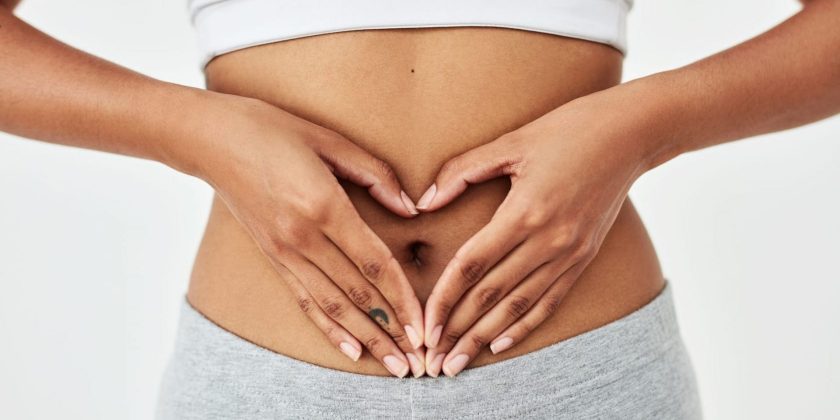Experts now believe hot temperatures can affect the diversity of our gut bacteria. Here’s why it matters and how you can keep your digestive system in optimum health when the mercury rises.
If you’ve ever suffered from bloating, stomach cramps or needed to rush to the loo, you’ll know just how much a tiny change in what we eat or how a small adjustment to our usual routines can knock our digestive health off course. Now experts believe that hot temperatures can also affect how our gut is performing.
Often called the body’s ‘second brain’, it’s becoming more and more understood just how much our gut impacts our health, affecting everything from our moods and emotions to our immunity.
It’s all down to the gut’s microbiome (GM). This ecosystem of trillions of tiny organisms and bacteria living in our digestive system is unique to each of us. Created in the first 1,000 days of life, it quickly develops into a sophisticated neural network, which transmits messages from our brain to this human gut ecosystem – a communication system known as the gut-brain-axis.
If we have a healthy-balanced and diverse microbiome this communication system works well, keeping lots of processes in our body running efficiently. If there’s a disruption in our microbiome, the gut-brain-axis won’t be able to work optimally.
You may also like
How to harness the power of your gut: a guide to maintaining a healthy, happy stomach
Although research into this area is extremely new, it’s now thought heat can affect our gut microbiome and how efficiently our gut-brain-axis is working.
Recent studies published in the National Library of Medicine and Animal Nutrition, have found that in animals hot temperatures affected the diversity and stability of bacteria in the gut and caused inflammation and changes to the gut lining.
Experts are beginning to believe that heat can also have similar effects on humans. “Changes in body temperature have been shown to influence gut microbiome diversity and stability,” explains Pippa Campbell, a nutritionist and nutrigenomics practitioner who specialises in female health.
“Heat can modulate the growth of pathogens in the gut, ie the bad bacteria. Too much heat can mean more growth of bad bacteria, which leads to common symptoms such as bloating, wind and diarrhoea, as well as worsening symptoms of IBS.

“When we get too hot, our body tries to cool us down, so it sends blood to the surface of the skin. This redirection of blood means the gut ends up with less blood, leading to an imbalance in gut bacteria.”
Being in the heat for an extended period of time can also have a negative effect on gut health adds Campbell: “Research has found that hot temperatures may increase the permeability of the gut lining which can allow bacteria and toxins to pass into the blood more easily. A healthy gut lining helps to keep the bad guys out.”
So, as temperatures climb to some of the highest on record, with the Met Office issuing a red warning of extreme heat for the first time ever, we asked experts how to protect your gut health as the mercury rises.
Don’t forget about fibre
“Increased heat slows the digestive process, so staying on top of your fibre intake is very important,” explains Dr Tariq Mahmood, medical director at Concepto Diagnostics. “Exotic fruits like mangoes and papaya and raw, dark green vegetables are packed full of fibre.”
Our gut microbiome works best when it’s diverse as possible and making sure we have enough fibre in our diets is a good way to ensure this. Charlotte Turner, registered nutritionist and founder of Health Nutritionist, suggests eating around 30g of fibre a day, particularly non-digestive fibre, such as whole grains, wheat bran, beans and nuts.
“In the summer, fruit lollies can be a good way of doing this. Or add fresh fruits to cereals in the morning or have with some natural yoghurt for a nutritious dessert,” says Turner.
Hydration is key
We all know how important it is to keep hydrated during hot weather to avoid heat stroke and heat exhaustion, but drinking plenty of water can also be beneficial for the gut.
“Staying hydrated is vital for maintaining gut health as it helps to regulate bowel movements,” says Hussain Abdeh, superintendent pharmacist at Medicine Direct. “It enables food to pass through your digestive system more easily, breaking down food along with stomach acids and enzymes. This helps to prevent constipation and ensures your digestive system is functioning properly. When you are dehydrated, this can cause constipation.”
In hot weather, our bodies lose far more water than normal through perspiration, so it’s important to make sure our fluid levels are topped up when it’s hot.

Keep to a routine
Just like a lot of processes in the body, our guts love routine. When we eat and sleep at similar times of day and exercise at regular intervals our guts are happy. However, when it’s really hot, a lot of our usual patterns and regimes can be upset.
“Keeping track of all the important vitamins and minerals that you need is challenging enough, but especially during the summer as eating habits can be disrupted by holidays, festivals, travel and more,” says Dr Mahmood.
It’s important to try and keep up regular routines as much as possible and if you do find your diet changing in the hot weather, Mahmood recommends adding vitamins and probiotics to make sure you’re properly fuelled.
Campbell also recommends “regularly eating probiotic-rich foods and prebiotics” when it’s hot to keep up good digestive health. Sauerkraut, kimchi, tempeh, kefir, yoghurt, miso and feta are good examples of probiotic foods to try, while garlic, onions, asparagus, leeks, bananas, oats and apples are prebiotics that all feed our good gut bacteria.
If you need extra support try a probiotic supplement.
You may also like
‘Hot Girls Have IBS’ is trending – but it might not be as empowering as it sounds
Get a good night’s sleep
OK, it’s not always easy to get a good night’s sleep when the weather’s stifling hot, but sleep can be extremely beneficial for good gut health.
“An imbalance of bacteria in the gut, known as dysbiosis, has been linked with fragmented sleep and short sleep duration,” explains Dr Sarah Brewer, medical director at Healthspan and registered nutritionist, who also points to research that suggests loss of sleep causes raised stress in the body which can lead to increased permeability in the gut.
Even when it’s hot, a few simple additions to your bedtime routine will not only improve your sleep but also have an impact on gut health. For Turner, these include leaving two to three hours between eating and sleeping in the evening, doing some gentle movements like yoga or stretching before bed to prompt movement in the digestive system, or practising slow breathing and meditation to help you switch off at night. This can also reduce anxiety, which also affects gut health.
Images: Getty
Source: Read Full Article
